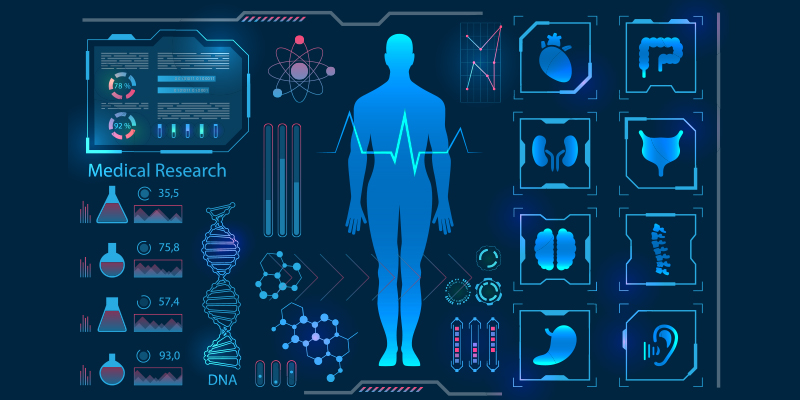Application Information
Application period has ended.
Overview
The National Institutes of Health (NIH) Office of Data Science Strategy (ODSS) Data and Technology Advancement (DATA) National Service Scholar Program is seeking experienced data and computer scientists and engineers to tackle challenging biomedical data problems with the potential for substantial public health impact.
Today, biomedical datasets are measured in petabytes and comprise data types ranging from DNA sequences to wearable sensor-generated outputs like heartrate. NIH envisions a biomedical enterprise in which data and information generated in the field, laboratory, and clinic are processed and analyzed in real time and readily shared. In an increasingly data-rich world, these advances are essential to the NIH mission of enhancing health, lengthening life, and reducing illness and disability.
Achieving this vision requires deep experience in, and knowledge of, data and computer sciences and related fields. To bring talented professionals with this necessary expertise to advance high-impact NIH programs, the ODSS created the DATA National Service Scholar Program. DATA Scholars will substantially optimize and accelerate data science in biomedicine to improve human health and well-being. The program will also encourage transformative approaches that lead to increased efficiency, innovative research, tool development, and analytics.
Meet the 2021 Data Scholars and the 2020 Data Scholars.
Program Details
The one- to two-year position will begin remotely but may transition onsite at a later date. Applicants should be prepared to relocate to one of the NIH institutes, centers, or the Office of the Director, located in Bethesda and Rockville, MD, or Research Triangle Park, NC. During this period, DATA Scholars will:
- Lead exciting, high-profile, transformative NIH projects that leverage large data sets to advance knowledge in areas of high biomedical research impact.
- Directly communicate with NIH senior leadership about projects and topics of importance for the biomedical research community.
- Collaborate with other DATA Scholars and the NIH data science community across broad disciplinary boundaries in training, discovery, and development of data science skills, methods, and tools.
- Engage with policymakers, top researchers at NIH and other institutions, and industry partners at the cutting edge of data science.
NIH Prioritized Projects for DATA Scholars
Eligibility
Applicants should possess technical skills in one or more of the following areas, as relevant to their proposed project area(s): artificial intelligence, cloud computing, data engineering, data science, database management, project management, software design, supercomputing, and/or bioinformatics. Industry experience is desired. Applicants should have an M.D., Ph.D. or equivalent doctoral degree and have advanced experience in data science or related fields. Applicants must be citizens or non-citizen nationals of the United States, or have been lawfully admitted for permanent residence (i.e., possess a currently valid Permanent Resident Card USCIS Form I-551, or other legal verification of such status).
Compensation and Benefits
Salary level will be determined based upon the Scholar’s past experience. Relocation expenses may be paid.
The NIH offers competitive benefits, telework options, and flexible alternative work schedules. For full details, see https://hr.nih.gov/benefits.
DHHS and NIH are Equal Opportunity Employers. Applications are strongly encouraged from individuals who are from groups identified in NIH’s Notice of Interest in Diversity (NOT-OD-20-031) as underrepresented in the biomedical, clinical, behavioral and social sciences, including individuals from underrepresented racial and ethnic groups, individuals with disabilities, individuals from disadvantaged backgrounds, as well as women.
Program Contacts
Dr. Alison Lin ([email protected] (link sends e-mail))











